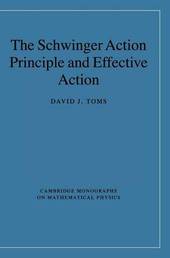
|
The Schwinger Action Principle and Effective Action
Hardback
Main Details
| Title |
The Schwinger Action Principle and Effective Action
|
| Authors and Contributors |
By (author) David J. Toms
|
| Series | Cambridge Monographs on Mathematical Physics |
|---|
| Physical Properties |
| Format:Hardback | | Pages:508 | | Dimensions(mm): Height 244,Width 170 |
|
| Category/Genre | Physics |
|---|
| ISBN/Barcode |
9780521876766
|
| Classifications | Dewey:530.12 |
|---|
| Audience | | Professional & Vocational | |
|---|
|
Publishing Details |
| Publisher |
Cambridge University Press
|
| Imprint |
Cambridge University Press
|
| Publication Date |
15 November 2007 |
| Publication Country |
United Kingdom
|
Description
This book is an introduction to the Schwinger action principle in quantum mechanics and quantum field theory, with applications to a variety of different models including Bose-Einstein condensation, the Casimir effect and trapped Fermi gases. The book begins with a brief review of the action principle in classical mechanics and classical field theory. It then moves on to quantum field theory, focusing on the effective action method. This is introduced as simply as possible by using the zero-point energy of the simple harmonic oscillator as the starting point. The book concludes with a more complete definition of the effective action, and demonstrates how the provisional definition used earlier is the first term in the systematic loop expansion. The renormalization of interacting scalar field theory is presented to two-loop order. This book will interest graduate students and researchers in theoretical physics who are familiar with quantum mechanics.
Author Biography
David Toms is Reader in Mathematical Physics in the School of Mathematics and Statistics at Newcastle University. Prior to joining Newcastle University, Dr Toms was a NATO Science Fellow at Imperial College London, and a postdoctoral fellow at the University of Wisconsin-Milwaukee. His research interests include the formalism of quantum field theory and its applications, and his most recent interests are centred around Kaluza-Klein theory, based on the idea that there are extra spatial dimensions beyond the three obvious ones.
|